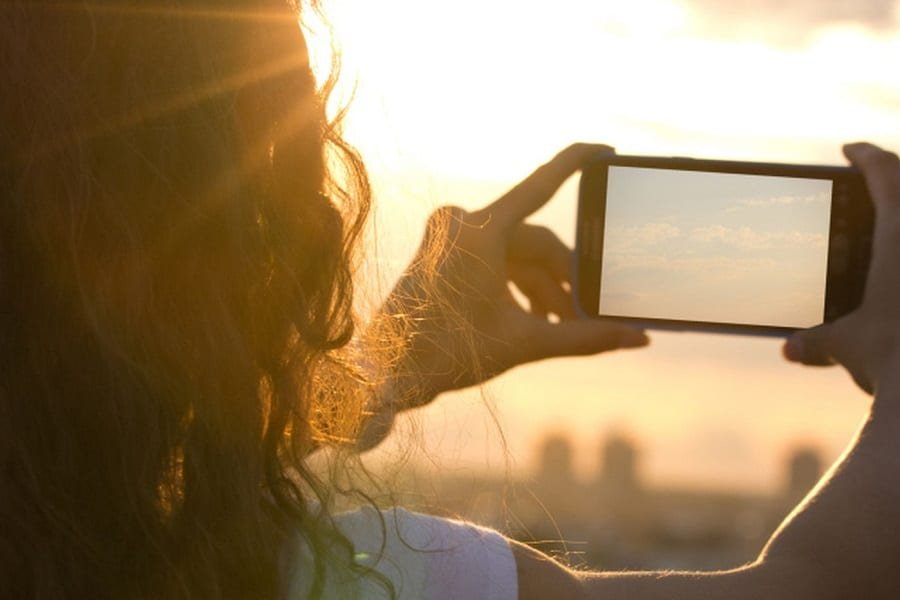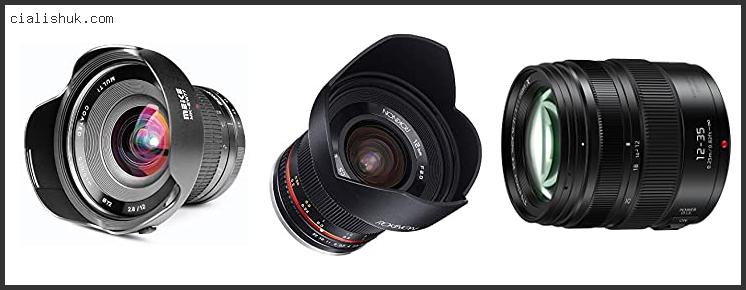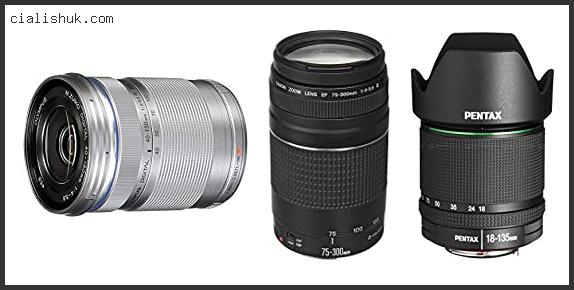Yes, sun damage can occur to camera lenses. It is important to be aware of the dangers of leaving your camera in direct sunlight or in a hot car. The heat from the sun can cause the lens to warp and become misshapen.
This can ruin your photographs and make it difficult to take clear pictures. If you must leave your camera in direct sunlight, be sure to cover the lens with a cloth or shade it with your hand to protect it from the harsh rays of the sun.
We all know that the sun can damage our skin, but did you know it can also damage your camera lens? If you leave your camera out in the sun for too long, the heat can actually warp the lens and cause permanent damage. So if you’re going to be taking pictures outdoors, make sure to keep your camera in the shade as much as possible.
Can Direct Sun Damage The GoPro Lens Or Sensor?
58mm Set of 2 Camera Lens Hoods and 1 Lens Cap – Rubber (Collapsible) + Tulip Flower – Sun Shade/Shield – Reduces Lens Flare and Glare – Blocks Excess Sunlight (58 mm, Rubber Hood + Tullip Hood + Cap)
- ✅ ESSENTIAL DSLR CAMERA ACCESSORY ►This set contains 2 rubber camera lens hoods that are compatible with all 67mm lenses. It also contains a lens cap. Always verify your camera’s lens thread size before ordering. The correct Ø diameter value can be found on the front of the lens or underneath the lens cap.
- ✅ BLOCKS EXCESS SUNLIGHT ►The lens hoods will block excess sunlight for enhanced photography and video footage. They will reduce lens glare and flare and boost the black in your pictures.
- ✅ COLLAPSIBLE IN 3 STEPS ►The rubber lens hood can be folded out in 3 steps to offer different levels of sun shading. Because the rubber lens hood can be fully collapsed, you can leave it on your lens so you can always use it when you need it.
- ✅ TULIP FLOWER HOOD ►The shape of the tulip flower lens hood is ideal for wide angle lenses. It offers a maximum amount of shading without causing vignetting.
- ✅ NEED MORE? ►Other CamKix accessories are available to protect, clean or enhance the pictures and video footage of your DSLR or phone camera.
Camera Lens Hoods – Rubber (Collapsible) + Tulip Flower – Set of 2 – Sun Shade/Shield – Reduces Lens Flare and Glare – Blocks Excess Sunlight for Enhanced Photography and Video Footage
- ✅ ESSENTIAL DSLR CAMERA ACCESSORIES ►This set contains 2 camera lens hoods that are compatible with all 58mm lenses. Always verify your camera’s lens thread size before ordering. The correct Ø diameter value can be found on the front of the lens or underneath the lens cap.
- ✅ BLOCKS EXCESS SUNLIGHT ►The lens hoods will block excess sunlight for enhanced photography and video footage. They will reduce lens glare and flare and boost the black in your pictures.
- ✅ COLLAPSIBLE IN 3 STEPS ►The rubber lens hood can be folded out in 3 steps to offer different levels of sun shading. Because the rubber lens hood can be fully collapsed, you can leave it on your lens so you can always use it when you need it.
- ✅ TULIP FLOWER HOOD ►The shape of the tulip flower lens hood is ideal for wide angle lenses. It offers a maximum amount of shading without causing vignetting.
- ✅ NEED MORE? ►Other CamKix accessories are available to protect, clean or enhance the pictures and video footage of your DSLR or phone camera.
37mm-72mm Camera Lens Hood, Lens Hood Sun Shade/, Reduces Lens and Glare for Digital Video Camera and Camcorder
- IMPROVE IMAGE SHARPNESS – Improve image sharpness and color reproduction. Prevent unnecessary light from entering the image. Make sure there is no fog in backlight, side light or flash shooting.Replacement for 37mm lens hood.
- PROTECTIVE LENS – Avoid accidental damage to the lens, it can also prevent fingers from accidentally touching the of the lens, and to some extent it can block wind, rain, snow and so on. Replacement for lens hood video camera.
- HIGH PERFORMANCE – The function of the hood is to suppress stray light from entering the lens to prevent smog and improve image sharpness and color reproduction. In light or night photography, you can avoid the surrounding interference light from entering the lens.
- CAMERA LENS ACCESSORIES – The use of hoods is both a means to improve image quality and a good professional and literacy of a strict photographer.
- SERVICE GUARANTEE – If you have any quality problems, please feel to us, we will provide you with a satisfactory solution, please feel to buy without any worry.
How Do I Protect My Camera Lens from the Sun?
Your camera lens is one of the most important parts of your photography gear, and it’s important to protect it from the sun. There are a few different ways to do this, and the best method will vary depending on the type of camera and lens you have.
If you have a DSLR or mirrorless camera with an interchangeable lens, the easiest way to protect your lens is to simply attach a UV filter to the front of it.
UV filters block out harmful ultraviolet rays from the sun, which can damage both your lenses and your camera sensor over time. They also help reduce glare and improve contrast in your photos. Even if you don’t plan on using a UV filter all the time, it’s worth keeping one in your bag for when you need it.
If you don’t want to use a filter, or if you’re using a point-and-shoot camera or smartphone with a fixed lens, there are still ways to protect your gear from the sun. One option is to use a lens hood, which shades the front element of your lens from direct sunlight. Lens hoods come in all shapes and sizes, so be sure to get one that’s specifically designed for your camera model.
Another option is to simply hold your hand up over the lens while you’re taking pictures, but this can be cumbersome and isn’t always practical.
Whenever possible, try to avoid taking pictures directly into the sun; not only will this make for more squinting on your part, but it can also cause uglyLens flare in your photos.
Does Sun Damage Mobile Camera Lens?
Most people believe that yes, sun damage can occur to a mobile camera lens if the phone is left in direct sunlight for an extended period of time. However, there are a few things to keep in mind with this belief. First, most modern phones have Gorilla Glass or some other type of strengthened glass on their lenses which helps to protect against any type of scratches or abrasions.
Second, the lens itself is usually made out of plastic which means that it is less likely to be damaged by the sun’s UV rays. Third, many phone manufacturers include a UV filter on their lenses to help protect against any type of sun damage.
With all of these factors in mind, it is still possible for sun damage to occur to a mobile camera lens but it is not as common as one might think.
If you are concerned about your phone’s lens being damaged by the sun, we suggest keeping it in a case or screen protector when you are not using it and avoiding leaving it in direct sunlight for long periods of time.

Credit: pocketphotography.com
Can Direct Sunlight Damage My Phone Camera
Your phone’s camera can be damaged by direct sunlight in a number of ways. The most common way is through the lens. The sun’s ultraviolet (UV) rays can damage the lens, causing it to become cloudy or foggy.
This can interfere with the camera’s ability to take clear pictures.
Another way that direct sunlight can damage your phone’s camera is by overheating the sensor. The sensor is responsible for converting light into an electrical signal that the processor can interpret.
When it gets too hot, the sensor can become less sensitive, resulting in poorer image quality. In extreme cases, it may even stop working altogether.
To protect your phone’s camera from damage, avoid taking pictures in direct sunlight whenever possible.
If you must take a picture in bright light, try shading the lens with your hand or another object. And be sure to keep your phone cool by avoiding prolonged exposure to direct sunlight.
Signs of a Damaged Camera Sensor
A damaged camera sensor can present a number of problems for photographers. Here are some signs to watch out for:
1. Images with strange artifacts or “holes”.
2. Dark or black areas in images that shouldn’t be there.
3. Images that are overexposed or underexposed by a large amount.
4. Colors that are off, either too saturated or muted.
5. A general loss of sharpness in images.
If you suspect your camera sensor may be damaged, it’s important to get it checked out by a professional as soon as possible. Sensor damage can be irreparable, so it’s best to catch it early!
Mirrorless Camera Sun Damage
As digital cameras have become more and more popular, their sensors have gotten larger and more sensitive. This is great news for photographers, but it also means that your camera is more susceptible to sun damage.
When shooting in bright sunlight, be sure to keep an eye on your camera’s LCD screen.
If you notice any discoloration or strange lines appearing on the screen, it’s a good idea to stop shooting and put the camera away.
The sun can damage your camera in other ways as well. For example, if you leave your camera out in the sun for too long, the heat can cause the internal components to expand and contract, which can ultimately lead to premature failure.
So be sure to keep your camera cool and protected when shooting in sunny conditions!
How to Fix a Sun Damaged Phone Screen
If you’re like most people, you probably use your phone all the time. And if you’re like most people, your phone is probably exposed to the sun regularly. Over time, this exposure can damage your phone’s screen.
The good news is that there are ways to fix a sun damaged screen. Here are a few tips:
1. Use a UV protection spray or gel.
These products can help protect your screen from further damage.
2. Clean your screen regularly with a soft, dry cloth. This will help remove any dirt or debris that could be causing damage.
3. Avoid using harsh chemicals on your screen. These can further damage the delicate surface of your screen.
4. If possible, keep your phone out of direct sunlight when not in use.
This will help prolong the life of your screen significantly.
5 . Invest in a quality case and screen protector .
Does Taking Pictures of the Sun Damage Iphone Camera
No, taking pictures of the sun will not damage your iPhone camera. The sun is simply too bright for the sensor in the iPhone camera to handle. However, if you take a picture of the sun with your iPhone and then zoom in on it, you may notice some pixels that are overexposed.
How to Damage Phone Camera
It is no secret that phone cameras are delicate. They are, after all, made up of many small parts that work in unison to produce high-quality images. So, it should come as no surprise that there are a number of ways you can damage your phone camera.
Here are just a few:
1. Get it wet: Water is one of the most damaging things to any electronic device, and this includes your phone camera. Even if you think your phone is waterproof, chances are the camera isn’t.
So, avoid taking it into the pool or ocean with you unless you have a waterproof case for it. And even then, be careful!
2. Drop it: We’ve all been there – we drop our phones and hope for the best.
Unfortunately, when it comes to your camera, dropping it is one of the surest ways to damage it. The lenses can crack, the inner workings can break, and overall image quality will suffer. If you must take your phone with you into precarious situations (like hiking or skiing), consider getting a tough case to protect it from drops.
3 . Use cheap accessories: When buying accessories for your phone camera (like cases or filters), resist the urge to go for the cheapest option available. Cheap materials are more likely to scratch or otherwise damage your camera lens than their higher-quality counterparts.
Pointing Lens at Sun
Do you know what can happen if you point your camera lens at the sun? It’s actually quite dangerous and can damage your eyesight permanently. Here’s why:
The sun is incredibly bright and when that light hits your camera lens, it gets concentrated. That means that the sunlight hitting your eye is much brighter than it would be if you were just looking at the sun with your naked eye. In fact, it’s so bright that it can actually burn your retina, which is the part of your eye that processes images.
So, next time you’re tempted to point your camera at the sun, remember that it’s not worth risking your vision for a photo. Trust us, there are plenty of other things to take pictures of!
Burned Camera Sensor
A camera sensor is a very delicate piece of equipment. If it becomes damaged, it can ruin your photos and cost you a lot of money to repair. Here are some things to keep in mind if you think your camera sensor may be burned:
1. Check for dark spots or lines in your photos. This is one of the first signs that something is wrong with your sensor.
2. Take a close look at your images on the LCD screen.
If they appear blurry or have strange colors, this could also indicate a problem with the sensor.
3. Have someone else take a look at your photos to see if they can spot any issues. It’s always good to get a second opinion!
4. If you suspect that your sensor is damaged, take it to a professional immediately for evaluation and repairs.
Conclusion
Yes, sun damage can occur to camera lenses, but it is relatively rare. There are a few things that can contribute to this happening, such as if the lens is left out in the sun for extended periods of time or if it is not properly protected from the sun when not in use. If you do notice any damage to your lens, it is important to have it repaired as soon as possible to avoid further damage.


![Ailun 3 Pack Camera Lens Protector for iPhone 16 Pro 6.3' / 14 Pro 6.1' & iPhone 16 Pro Max 6.9' / 14 Pro Max 6.7',Tempered Glass,9H Hardness,Anti-Scratch,Case Friendly[Does not Affect Night Shots]](https://m.media-amazon.com/images/I/41Q88AoVtNL._SL160_.jpg)









